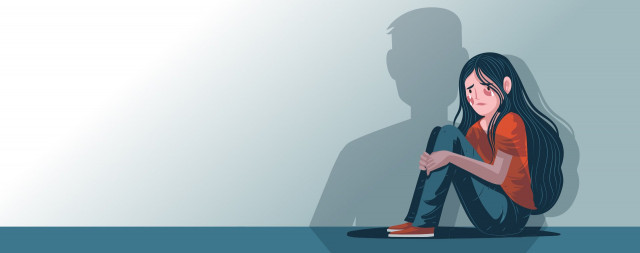Domestic violence laws remain words on paper
Low awareness among victims, poor implementation by law enforcers has prevented the conviction of wife-batterers

No matter how wordy, lengthy or grammatically correct a newly passed law on domestic violence is, its legislative value is reduced to zero if the rights guaranteed under its rulings cannot be understood let alone claimed by the majority of battered women, illiterate in English.
In Punjab, many institutions like the Darul Aman’s, Shaheed Benazir Bhutto Human Rights Centres for Women (Crisis Centres) and Violence Against Women Centres (VAWC) have been established for the protection of vulnerable women, but the entire focus of the state appears to be on the establishment of new institutions instead of raising awareness among women on the existing facilities and strengthening their justice delivery system.
Nabila Shaheen, a women's rights activist, was of the opinion that despite the country devising commendable laws dealing with the problems facing women, including harassment, domestic violence, honour killing, early marriage and the right to inheritance, lack of awareness among women and sensitivity among law enforcers prevented them from being implemented.
“The question is whether an effective mechanism has been made to implement these laws. Were the vulnerable women made aware of the existence of these laws? Have the law enforces been trained on how to execute them? The answers to all these questions will be negative,” regretted Nabila.
According to data obtained by the Express Tribune from the Sustainable Social Development Organization (SSDO), 10,365 incidents of violence against women were reported to the police in the first four months of 2023 in Punjab alone.
Furthermore, a report published in 2023 called the Status of Women in Pakistan, quoted statistics from the Pakistan Demographic and Health Survey, which reported that 23 per cent of married women aged 15 to 49 had experienced physical violence at some point in their lives while, 26 per cent had been subjected to degrading treatment, and five per cent had suffered sexual violence at the hands of their husbands.
“The situation of women's safety in Pakistan's largest province is very alarming. The actual number of incidents is likely to be higher given barriers in reporting, harmful social values, and ineffective and negative police responses,” commented Syed Kausar Abbas, Executive Director of the SSDO.
In various districts of Punjab including Lahore, Darul Aman centres have been set up for the protection of women where women are given temporary accommodation.
Apart from these, 12 districts of Punjab including Lahore, Multan, Bahawalpur, DG Khan, Faisalabad, Muzaffargarh, Khushab, Rawalpindi, Sialkot, Wihari have Shaheed Benazir Bhutto Human Rights Centers for Women (Crisis Centers), however, most of these are performing unsatisfactorily.
The Punjab government established the first Violence Against Women Center (VAWC) in Multan in 2017 to provide justice and protection to domestic violence victims, through physical and mental health treatment alongside counselling and legal assistance facilities.
Now, in the budget for 2024-25, Violence Against Women Centers (VAWC) are also being built in Lahore, Rawalpindi and Faisalabad, with the respective budgets of Rs125.82 million, Rs169 million and Rs300 million.
Speaking to The Express Tribune on the matter, Punjab Women Protection Authority’s Chairperson Hina Parvez Butt said, “The Punjab Women Protection Act was approved by the previous government of Shehbaz Sharif, but the Tehreek-e-Insaf government could not make the rules of this act in four years. But now, in the coming few days, the rules of the Women's Protection Act will be made so that when the cases of the affected women go to the courts, they do not have to face legal problems, and the judges punish the accused according to the law.”



















COMMENTS
Comments are moderated and generally will be posted if they are on-topic and not abusive.
For more information, please see our Comments FAQ